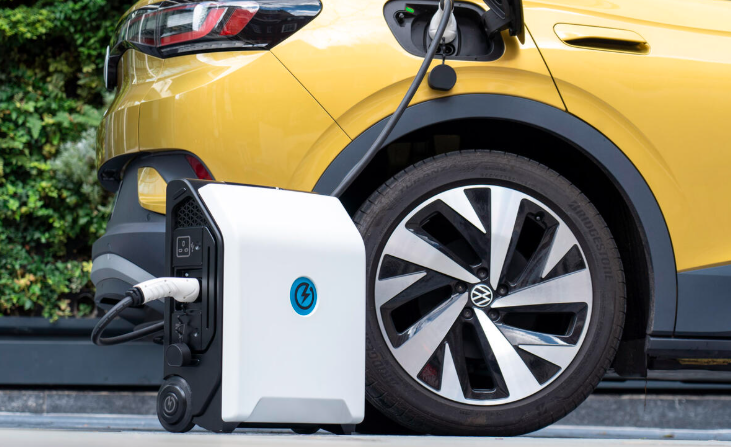Ev charger solution: powering the shift to sustainable transportation

The rise of electric vehicles (EVs) is transforming the automotive landscape worldwide. As more consumers and businesses adopt EVs, the demand for effective ev charger solution becomes increasingly critical. Without reliable and accessible charging options, the mass adoption of electric vehicles faces major obstacles. This article explores what constitutes a strong ev charger solution, its types, benefits, challenges, and the future outlook of EV charging infrastructure.
What is an ev charger solution?
An ev charger solution refers to the comprehensive system designed to deliver electrical power to electric vehicles safely, efficiently, and conveniently. This solution is not limited to just the hardware or chargers but also includes software platforms, network management, energy integration, and customer services that together provide seamless charging experiences for EV users.
Components of a complete ev charger solution
- Charging hardware
At the core of any ev charger solution lies the physical charging unit. These chargers vary by power capacity and application. They range from slow home chargers (AC charging) to ultra-fast public chargers (DC fast charging). The choice of hardware depends on location, vehicle compatibility, and user requirements. - Network management systems
Modern ev charger solutions include digital platforms that manage the operation of multiple charging stations. These systems handle user authentication, billing, remote monitoring, and maintenance alerts. Network management helps ensure chargers are operational and accessible at all times. - Energy management and integration
An efficient ev charger solution incorporates smart energy management to optimize electricity usage. This includes scheduling charging during off-peak hours, balancing load on the electrical grid, and integrating renewable energy sources such as solar or wind power to reduce carbon emissions. - User interface and support services
A user-friendly interface — usually accessible via mobile apps or web portals — enhances the charging experience. Features may include locating nearby chargers, booking time slots, real-time status updates, and payment processing. Good customer support is also essential to resolve issues promptly.
Types of ev charger solutions
- Home ev charger solution
Most EV owners rely on a home charger solution for their daily charging needs. These units are typically installed in garages or driveways and offer convenient overnight charging. Home chargers usually use alternating current (AC) and come with smart features such as scheduled charging and energy monitoring. - Workplace ev charger solution
Companies increasingly offer workplace charging to support employees driving EVs. These solutions help encourage sustainable commuting, reduce carbon footprints, and increase employee satisfaction. - Fleet ev charger solution
Commercial fleets are rapidly adopting electric vehicles. Fleet charging solutions focus on managing multiple vehicles, optimizing charging schedules to minimize downtime, and reducing operating costs.
Benefits of implementing ev charger solutions
- Encourages EV adoption
Widespread availability of reliable ev charger solutions alleviates range anxiety and builds consumer confidence in electric vehicles. - Environmental sustainability
Efficient charging solutions, especially those powered by renewable energy, reduce greenhouse gas emissions and help combat climate change. - Cost savings
Smart ev charger solutions optimize electricity consumption and can reduce energy bills through off-peak charging. - Energy grid support
Advanced solutions with vehicle-to-grid (V2G) capabilities allow EVs to feed power back to the grid, enhancing stability and efficiency. - Economic growth and job creation
Expanding charging infrastructure stimulates investment and generates employment opportunities in technology, construction, and maintenance sectors.
See also: Why Choose an IDC Data Center for Your Business Infrastructure?
Challenges in deploying ev charger solutions
Despite clear advantages, some challenges must be addressed for widespread ev charger solution deployment:
- Infrastructure costs
Installing high-power chargers and upgrading electrical grids require significant capital investment. - Grid capacity and stability
High penetration of EVs demands careful energy management to prevent grid overloads and power outages. - Standardization issues
Multiple charging standards and connectors can confuse users and complicate infrastructure expansion. - User experience
Inconsistent charger availability, reliability, and payment systems can hinder user adoption. - Geographical constraints
Rural and remote areas often lack the necessary infrastructure for effective ev charger solutions.
Conclusion
As electric vehicles continue to reshape the transportation industry, robust and innovative ev charger solution are paramount to support this transition. By offering convenient, reliable, and scalable charging infrastructure, these solutions reduce barriers to EV adoption and promote a cleaner, greener future. While challenges remain, ongoing technological advancements and collaborative efforts among manufacturers, utilities, and policymakers are accelerating the development of superior ev charger solutions.
For businesses and consumers alike, investing in smart and efficient ev charger solution is not just a step towards sustainability, but also an opportunity to embrace the future of mobility with confidence.




